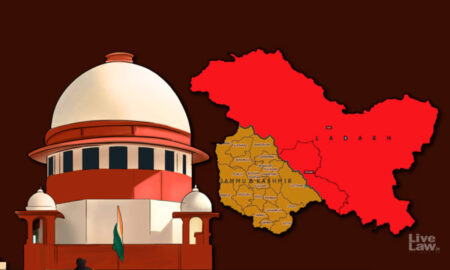The Court observed that dismissing the pregnant woman’s petition for an abortion would be a violation of her right to dignity.
In the case of ABC v. State of Maharashtra & Anr., the Bombay High Court last week empowered a woman’s right to choose and authorized the abortion of a married woman’s 33-week-old pregnancy after overriding the opinion of the medical board, which had counselled against abortion due to the duration of the pregnancy.
The petitioner, an adult married woman, had made an educated choice, according to a division bench of Justice GS Patel and Justice SG Dige, and it was her right to choose whether to terminate the fetus or proceed with the pregnancy.
“The petitioner takes an informed decision. It is not an easy one. But that decision is hers, and hers alone to make, once the conditions in the statute are met. The right to choose is the petitioner’s. It is not the right of the Medical Board. And it is also not the right of the court to abrogate the petitioner’s rights once they are found to fall within the contemplation of the law,” the bench held.
In its 23-page judgment of January 20, the Court underlined, “In refusing termination only on the ground of delay, this court would not only be condemning the foetus to a less than optimal life but would also be condemning the mother to future that will almost certainly rob her of every positive attribute of parenthood. It would be a denial of her right to dignity, and her reproductive and decisional autonomy,”

RATIO DECIDENDI
Advocate Aditi Saxena, representing the petitioner in court, strongly argued that it was not strictly prohibited to terminate a late pregnancy after 24 weeks had passed. She filed a petition for the court’s involvement since the legislation was silent on the subject of what must done in the event that an anomaly in the foetus is diagnosed later in the pregnancy.
She went on to emphasise that the medical board had, in fact, admitted that the foetus was suffering from abnormalities; nonetheless, they had counselled against terminating the pregnancy on the grounds that it was already at an advanced stage of pregnancy.
The High Court, on the other hand, found that it was unable to concur with the report since it remained mute on the questions that were presented by the petitioner.
“The Medical Board report addresses itself to medical interventions, the availability of incessant and ongoing treatments and nothing more. It does not take into account the social and economic position of the Petitioner and her husband. It does not even attempt to envision the kind of life — one with no quality at all to speak of — that the Petitioner must endure for an indefinite future if the Board’s recommendation is to be followed. The Board really does only one thing: because late, therefore no. And that is plainly wrong, as we have seen. Given a severe foetal abnormality, the length of the pregnancy does not matter,” the Court underscored.
The court offered the following remarks in regard to the Medical Termination of Pregnancy Act,
“The Act is of 1971. It was ahead of its time. But in the cold sterility of a legislation, we must discern where justice lies when it is to be applied to the human condition. This is not a case where a blanket invocation of this or that provision will provide an answer. We must ensure above all that the rights of the Petitioner — including those enunciated by the Supreme Court — are never compromised in the sometimes blind application of a statute”

RECENT CASES
The choice to terminate a pregnancy at 33 weeks was upheld by the High Court of Delhi, which reasoned that the right of the woman in such circumstances should be considered absolute and decisive in the case of Mrs X v. GNCTD & Anr.













